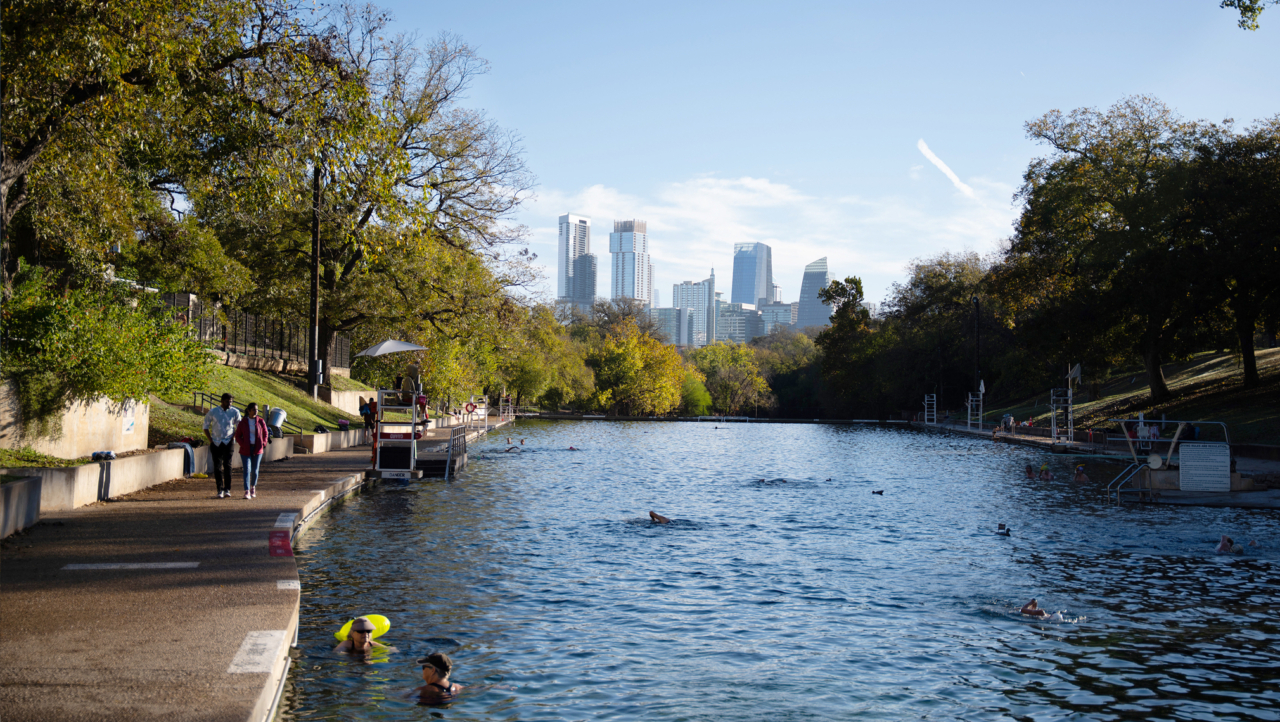How to Choose an Apartment: 8 Essential Tips


Written by Alycia Lucio on April 17, 2025
When you’re on the hunt for a new apartment, the goal is to find a place that feels like home but won’t blow your budget. That means an apartment that checks all the right boxes: lifestyle, price point, and any long-term goals you have for the future. To help you navigate the search for an apartment, we’ve put together this essential guide.
1. Focus on location
One of the top factors you’ll want to consider when choosing an apartment is location. Even the perfect apartment in the wrong neighborhood can quickly become a stressor. Consider these aspects of the apartment’s location:
- Proximity to social ties: How close is the apartment to your family, friends, or workplace? Being closer to the people and places you care about can make a huge difference in your day-to-day life.
- Access to activities and entertainment: Does this location put you within easy reach of the activities you enjoy? How far would you have to travel for dining, nightlife, parks, or other cultural spots you want to visit often?
- Commute: The longer the commute, the higher the potential for frustration and added expense. Think about the financial and time costs involved in traveling to and from the apartment. Also, think about your transportation options, such as driving, biking, or using public transportation.
- Nearby essentials: Take a good look at local essential services like grocery stores, medical offices, banks, and even parks that are within walking distance or a short drive away. The convenience of these essentials being nearby can have a huge impact on your daily life.
2. Set your budget
Budgeting is also another key factor in choosing an apartment. You want to make sure that you’re not only paying rent but also factoring in all the additional costs that could impact your finances. A few key points to consider when setting your budget include:
- Monthly rent and additional costs: Look at rent costs and see if utilities are included or will have to be paid extra. Other costs to consider include parking fees or even things like storage unit rentals if you have too much stuff for your apartment. To stay within your budget, use a rent affordability calculator to determine what you can comfortably afford.
- Deposit and fees: Most apartments will require some sort of deposit, such as first and last month’s rent upfront. There can also be additional fees, like pet fees, which you’ll want to factor into your financial planning.
- Rent increases: Ask about potential rent hikes, especially if the lease is month to month. You don’t want to be caught off guard by unexpected increases.
- Renters insurance: Some landlords might require you to show proof of renters insurance, and it’s just a good idea in general to have it for your protection. Learn more about renters insurance and how to get covered.
3. Assess the floor plan
The floor plan of an apartment isn’t just about how much space is available — it’s also about whether the layout suits your lifestyle. Here are a few things to consider as you tour the apartment:
- Room size and flow: How is your furniture going to fit in each room? Does the apartment layout offer an easy flow from room to room? Do you have enough space to host if you do so often, or anything else that you like to do often?
- Lighting: Is there enough natural light to make the space feel warm and inviting? Poor lighting can make even the most beautiful space feel dark and unwelcoming.
- Storage: Are there enough closets, cabinets, and other spaces to store all your belongings? An apartment with poor storage can lead to clutter or having to rent a storage unit for your excess stuff.
- Work-from-home considerations: If you work remotely, make sure there’s a designated space for your desk or a home office setup. Your environment can impact your productivity and comfort, so make sure it does so positively.
4. Evaluate the amenities
Apartment amenities are one of those things that can make or break how easy your day-to-day living is in an apartment. Assess which amenities are a must-have and which ones you’re willing to live without. As you’re scrolling through listings or touring the apartment, make sure your must-have apartment amenities are included. Does the apartment have an in-unit laundry, or will you need to rely on a shared laundry room? The convenience of doing laundry at home can make a big difference in your daily routine.
Parking is another big factor to consider. Is parking included in your rent, or will you face an additional cost? And, if parking is available, check if it’s assigned or first-come, first-served. A lack of on-site parking can affect both your convenience and the overall cost of living in an apartment. Also, check out whether the complex has recreational facilities. If the complex has something like a gym or pool, make sure it’s well-maintained and accessible.
5. Inspect for wear and tear
It can be easy to fall in love with the look of an apartment, but that doesn’t mean you should overlook signs of wear and tear. A little extra attention can go a long way in identifying potential red flags before signing a lease. While most maintenance issues are the responsibility of the landlord or property manager, documenting concerns like cracks, stains, or dents in walls, ceilings, and floors can help you avoid disputes later.
During your tour, test faucets, toilets, and light switches, and make sure major appliances like the fridge and oven are working properly. Be alert for unusual smells, as musty or sewage-like odors might signal issues like mold or plumbing problems. These signs could indicate poor property management, which might lead to bigger headaches down the road. Being observant now can help ensure a smoother rental experience.
6. Prioritize your safety and security
When looking at apartments, safety should be one of your top priorities. Feeling safe in your home can provide peace of mind, so take the time to assess both the building itself as well as the surrounding neighborhood. Look for secure entryways, such as key fobs or coded access gates, and check that all doors have strong, functioning locks. You’ll also want to weigh the benefits and drawbacks of a ground-floor unit, as it may be more vulnerable to break-ins.
Make sure to check the lighting in common areas, like hallways, parking lots, and walkways. Well-lit spaces can help deter criminals and make your community feel safer. Also, consider whether the building has additional security features, like cameras or on-site security guards. While these may come at a higher cost, the added peace of mind can be well worth it.
7. Compare lease terms
Before you sign on that dotted line, you’ll want to take the time to carefully look at and review the lease agreement. Remember, this isn’t just paperwork — it’s a legally binding agreement between you and the landlord that lays out everyone’s responsibilities and offers important protections to both parties.
Start by checking the lease length. Does it align with what you need? Some leases offer month-to-month flexibility, while others require a commitment of six months, a year, or even longer. Make sure the timeline listed works for your plans, and check if renewal is an option. Next, review the policies on pets, subletting, and overnight guests.
Also, look for any hidden charges, such as penalties on late payments or maintenance fees, as those could add up over time. Is paying rent online an option or will you need to mail a check each month. Many landlords now offer online payment options, making it easier to manage your apartment expenses.
If anything in the lease seems unclear or vague, ask your landlord about it. Clarifying terms from the beginning can prevent misunderstandings and potential issues down the road, so you have an easier renting experience.
8. Go with your gut
Choosing an apartment isn’t always all about logic and numbers. A lot of it comes down to how the space makes you feel. When you walk into the apartment, do you feel like you’re already at home? Or do you want to immediately walk out and head to the next place? Don’t ignore that feeling. Your intuition can be a tell-tale sign that you’ll be happy (or unhappy) with the apartment in the future.
Choosing the right apartment can be a bit of a journey, but taking things one step at a time and considering all factors, from budget to floorplan or amenities, can help make the decision a little bit easier. If you’re ready to get started on your apartment search, make sure to use Zillow’s Rent Affordability Calculator to help find apartments within your budget, or check out our renting resources.
Tags
Find an apartment you’ll love on Zillow
With Zillions of up-to-date listings and filters for your must-haves, it's easy to find your perfect apartment on Zillow Rentals.
Search rentals


